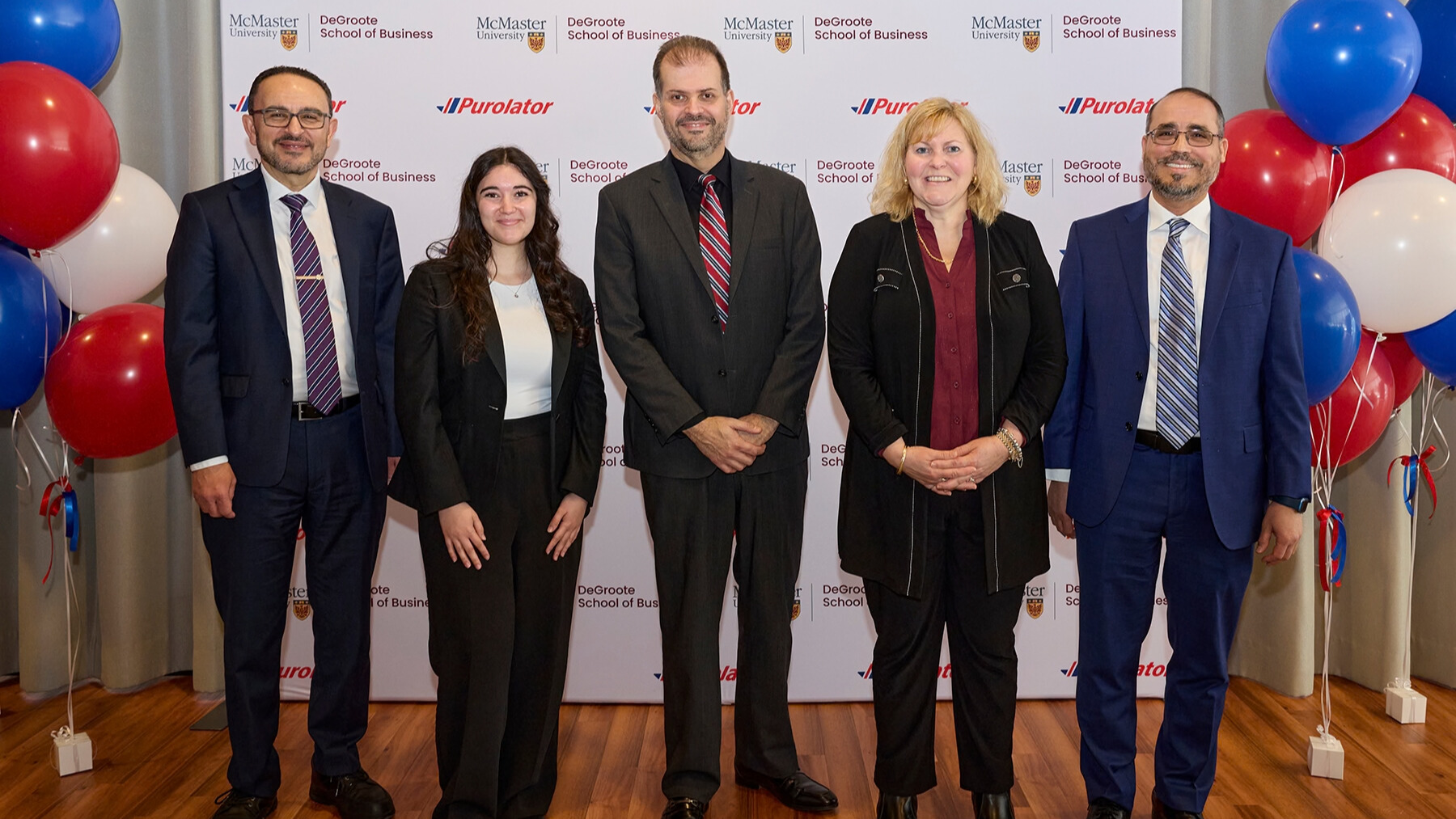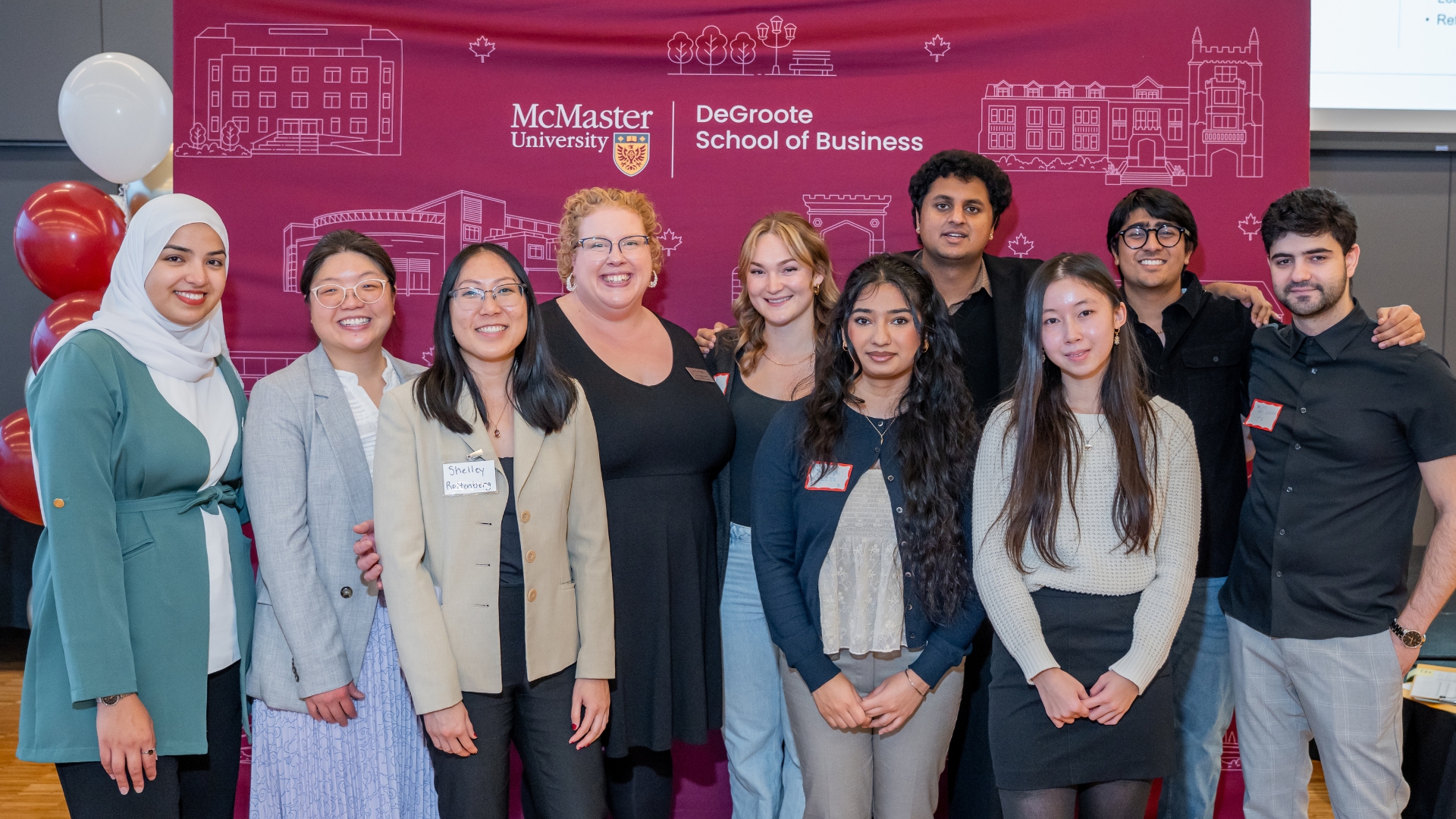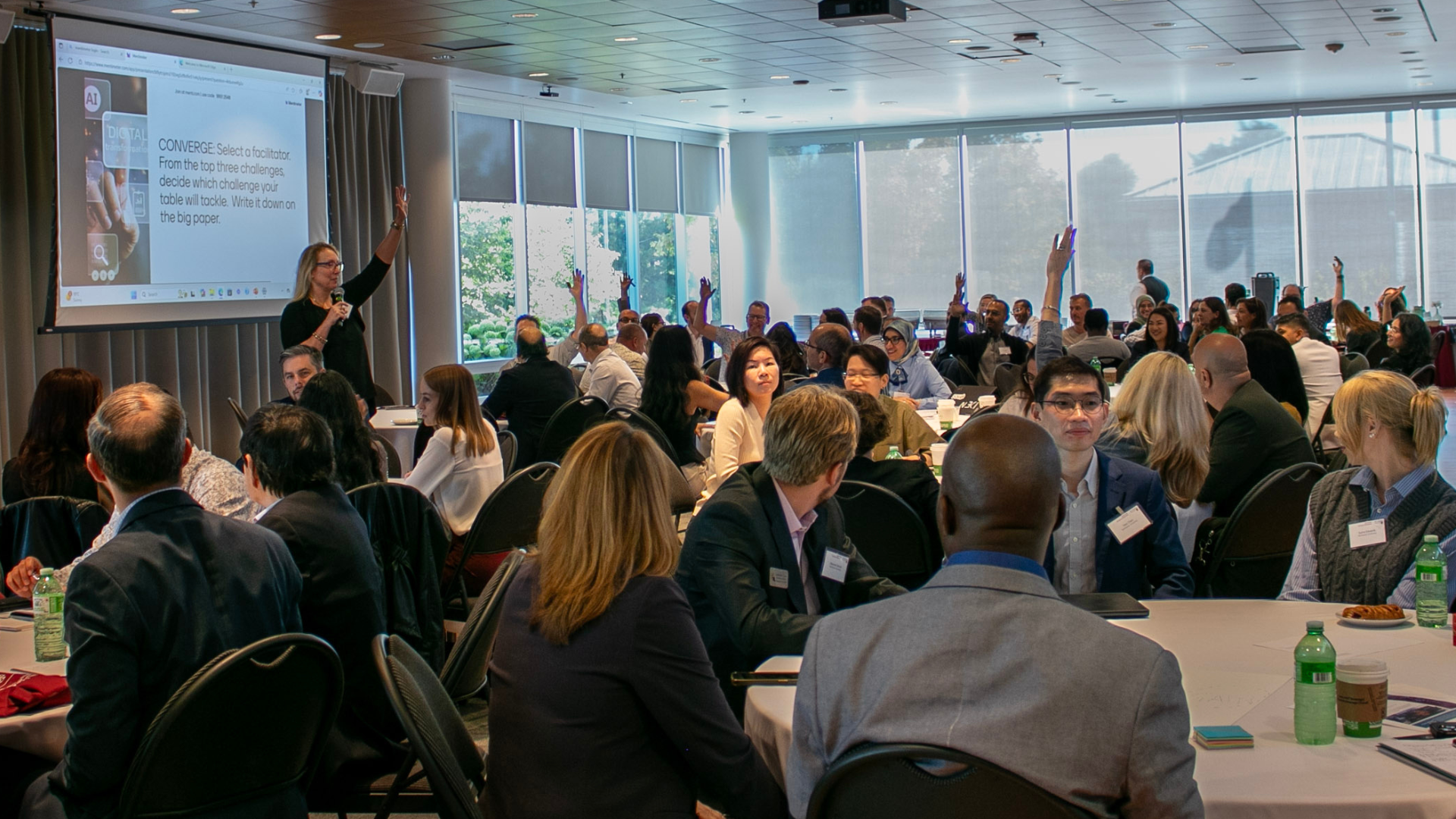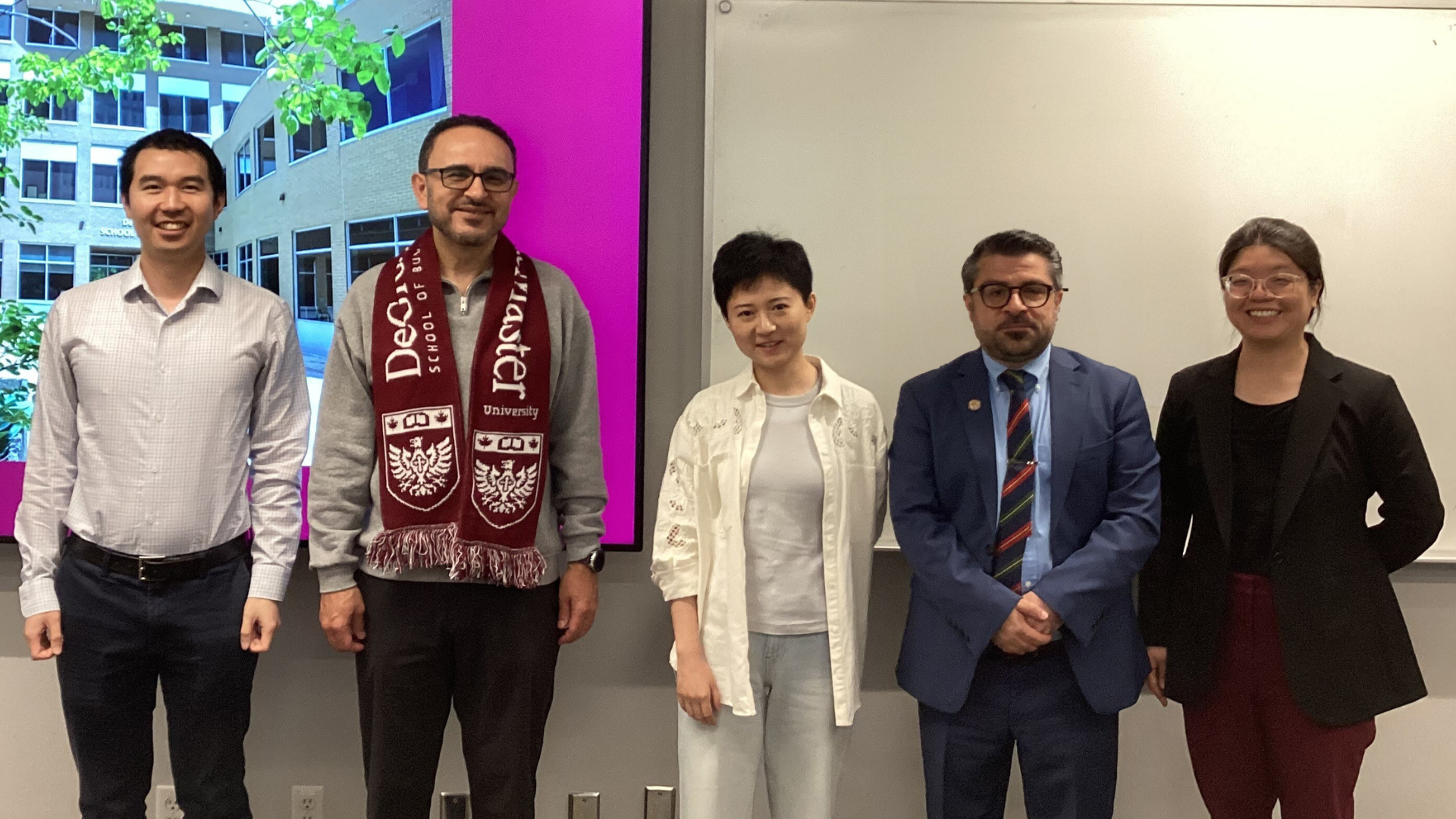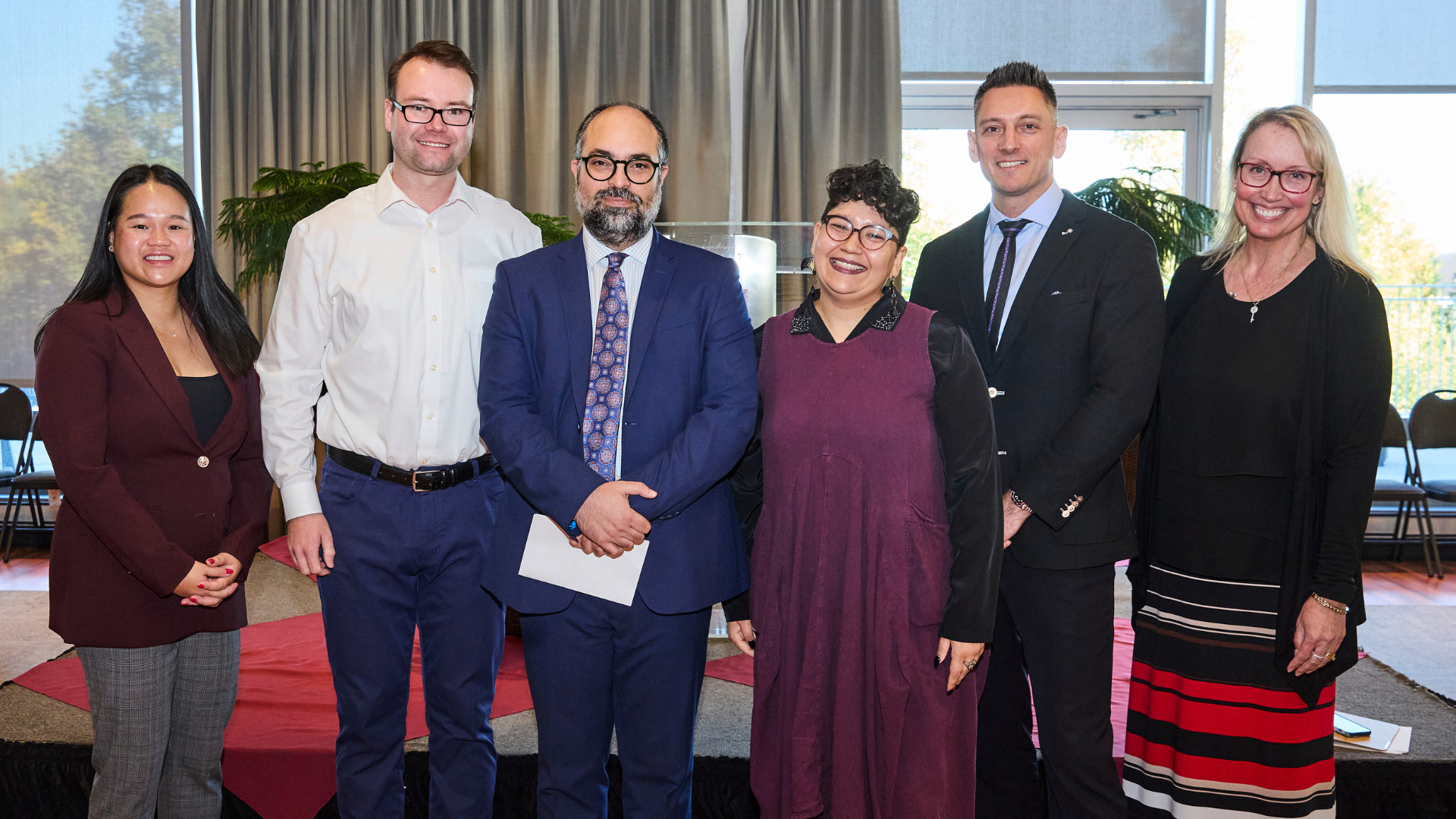HEALTH POLICY AND MANAGEMENT HUMAN RESOURCES AND MANAGEMENT INFORMATION SYSTEMS OPERATIONS MANAGEMENT
Researchers advance our understanding of the implications of COVID-19
November 8, 2020 ·
Contributed by: Rebecca Hull, Marketing and Communications Strategist

DeGroote’s world-leading experts are studying the social and economic impact of the global coronavirus outbreak. The projects featured in this story highlight the various ways DeGroote researchers are contributing to Canada’s pandemic response. Discover how their research makes a difference in people’s lives, our community, and worldwide.
Across our faculty areas, our researchers are working tirelessly to advance our understanding of the implications of COVID-19 and overcoming the resulting adversity,” says Khaled Hassanein, Associate Dean (Graduate Studies & Research). “Our researchers are creating innovative solutions to help build stronger communities as they respond to crisis and navigate change.”
COVID-19 interdisciplinary research projects
 |
Health care virtual service deliveryAssistant Professor Jenna Evans and Agnes Grudniewicz of the Telfer School of Management will analyze how primary health care organizations have moved to virtual program delivery during the pandemic. In partnership with Alliance for Healthier Communities, this project will assess the transition to virtual social services. It will allow for the dissemination of findings among the partner membership. |
 |
Data-driven pandemic solutions for hospitalsElkafi Hassini, an Operations Management professor, is researching how to help health-care systems address unplanned patient readmissions and allocate limited hospital resources most effectively. He is teaming up with global health informatics giant 3M. Together, they will develop ways to help hospital networks address these problems during the pandemic and afterward. |
 |
Designing a real-time cybercrime alert system for older adultsMilena Head, an Information Systems professor, supervises MIRA postdoctoral fellow Xuecong Lu’s study about how cybercrime targets older adults. Cybercrime targeting older adults has nearly tripled, while their use of online services has rapidly expanded during this pandemic. This research can help guide interventions to these vulnerable older adults, ideally before they are targeted for cybercrimes. |
 |
Reimagining the classroom: Post-pandemic elementary educationProfessor Benson Honig is working with colleagues across McMaster to evaluate the barriers to engagement and sustained online/blended learning for elementary school-aged students. The team will carry out this research in partnership with the Hamilton Wentworth District School Board and other community partners. It will help inform educators, families, and young students to better utilize educational resources. Virtual incubator trains entrepreneurs to bounce back from COVIDProfessor Benson Honig, the Teresa Cascioli Chair in Entrepreneurial Leadership, received a two-year COVID-19 grant to provide women with virtual training in entrepreneurial skills that will allow them to get back on their feet and support community growth, inclusion, and social well-being all at once. The ingenuity incubator is an online community and toolkit that provides aspiring entrepreneurs with peer-reviewed research and training on creativity, innovation, and entrepreneurial skills. |
 |
Building capacity and skills to survive shock for current and future not-for-profit managersAssociate Professor Brent McKnight, along with Sandra Lapointe of the Faculty of Humanities and in partnership with Social Impact Advisors, were successful with their Mitacs Accelerate application. The team will pilot a suite of experiential-learning course protocols and online resources to build social innovation-related knowledge and skills across the not-for-profit sector. NFP managers from the United Way network will adopt a dual role as co-learners and mentors to develop a real-life course project with McMaster students. How retailers are dealing with changing consumer habitsAssociate Professor Brent McKnight is studying how consumers’ changing habits during the pandemic significantly impact independent Main Street retailers. This research will help Burlington Downtown Business Association (BDBA) members build their resilience and respond to the crisis. Additionally, he is undertaking research designed to further understand and enhance resilience within the non-profit sector in the context of COVID-19 and beyond.
|
 |
Residential electricity usage patternsDean Mountain, professor of Finance and Business Economics, is leading a project with Hydro One to develop a better understanding of residential electricity consumption patterns and price-responsiveness in a stay-at-home and reduced income COVID-19 environment. The goal is to determine the changes in electricity consumption patterns to identify possible future optional pricing plans. |
 |
Worker well-being during COVID-19 crisisAssistant Professor Sean O’Brady is leading the McMaster component of an international study examining COVID-19’s impact on work arrangements within academic institutions. As McMaster has pivoted to a work from home context this research is providing insights regarding how staff and faculty are adapting and will inform return to campus policies. He is also working with the Communications Workers of America (CWA) to identify how new technologies adopted in response to the COVID-19 crisis affect worker well-being. The research findings will help inform collective bargaining over changes to work organization in Canada and the United States. |
 |
Using AI to protect air passengers in a pandemicManaf Zargoush, assistant professor of health policy and management at the DeGroote School of Business, assesses how to minimize the risk of spreading disease in airplanes and airports. He received a McMaster COVID-19 research grant to study evidence-based operational and screening decisions. This project aims to mitigate the spread and impacts of COVID-19. |

